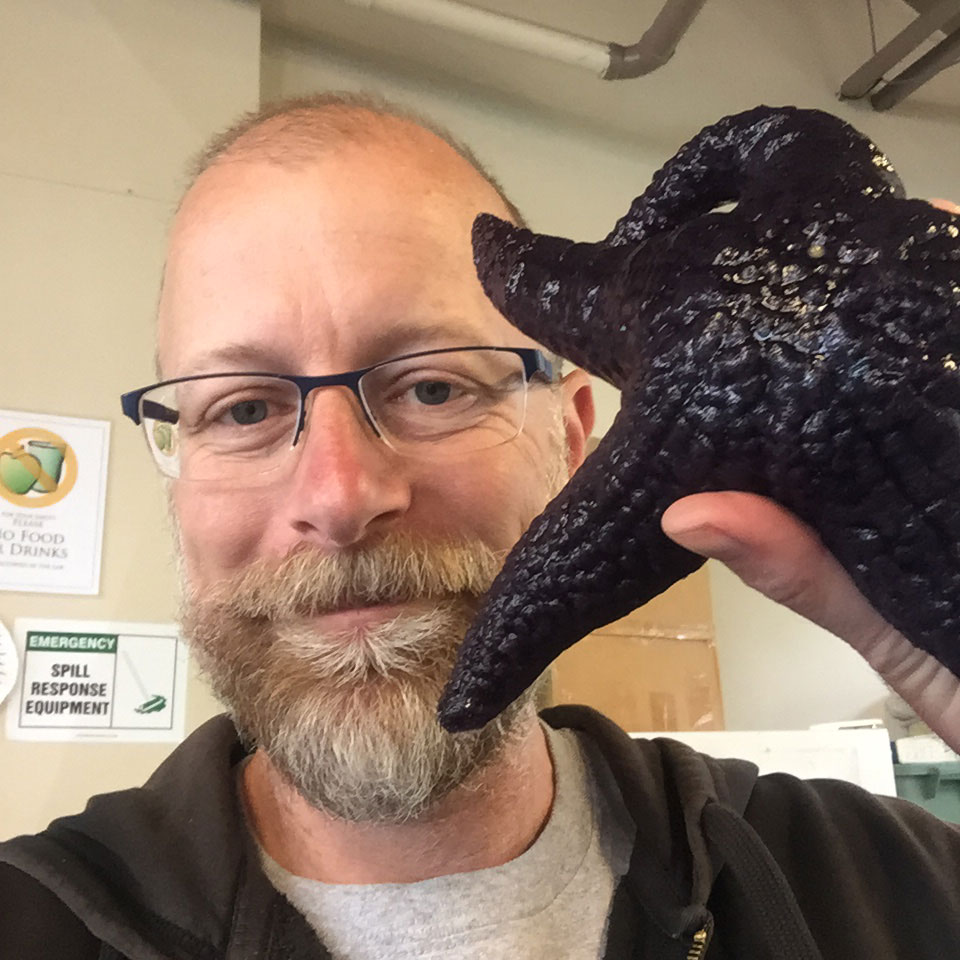Education
Ph.D., Duke University, 2000
More About
Dr. Wares has a joint appointment in the Odum School of Ecology and the Department of Genetics, Franklin College of Arts and Sciences.
Research Interests
I study gene flow and molecular evolution in natural populations with a particular interest in examining the effects of asymmetric dispersal. Although the approaches I use would fit wind-dispersed and riverine species, most of the work in my lab is on marine species, with barnacles being one of my favorite groups. The dispersal of marine larvae has the potential to add to our understanding of how physical and environmental forces lead to the balance of diversity we see in coastal communities.
- Population Ecology
- Molecular Ecology
- Organismal Ecology
- Aqautic Ecology
- Marine Ecology
- Disease Ecology
- Evolutionary Ecology
Selected Publications
Schiebelhut, LM, M Giakoumis*, R Castilho, VE Garcia, J.P. Wares, GM Wessel, and MN Dawson. 2023. Is It in the Stars? Exploring the Relationships between Species’ Traits and Sea Star Wasting Disease, The Biological Bulletin 2022 243:3, 315-327.
Erlenbach*, TR and J.P. Wares. 2023. Latitudinal variation and plasticity in response to temperature in Geukensia demissa. Ecology & Evolution, 10.1002/ece3.9856.
Wares, J.P., M. Thiel, M. Munizaga, S. Rech, & J.T. Carlton. 2022. Ancient islands or ancient mariners? The cryptic history and voyages of the South Pacific barnacle Rehderella Zevina & Kurshakova, 1973 (Cirripedia: Thoracica: Chthamalidae). J. Crust. Biol. 42: 1-8. doi: 10.1093/jcbiol/ruac054.
Aquino, C.A., R.M. Besemer, C.M. DeRito, J. Koclan, I.R. Porter, P. Raimondi, J.E. Rede, L.M. Schiebelhut, J.P. Sparks, J.P. Wares, I. Hewson. 2021. Evidence that microorganisms at the animal-water interface drive sea star wasting disease. Frontiers in Microbiology.
Rogers, R.L., S.L. Grizzard, J. E. Titus-McQuillan, K. Bockrath*, S. Patel, J.P. Wares, J.T. Garner, C.C. Moore. 2021. Gene family amplification facilitates adaptation in freshwater unionid bivalve Megalonaias nervosa, Molecular Ecology, 31 Dec 20.
Wares, J.P., A. E. Strand, E. E. Sotka. 2021. Diversity, divergence and density: How habitat and hybrid zone dynamics maintain a genomic cline in an intertidal barnacle. J. Biogeography, 48: 2174-2185.

